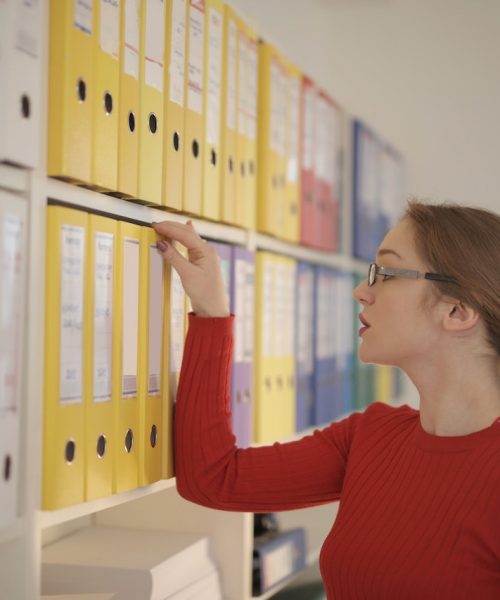As a sole proprietor, you have the opportunity to claim a variety of expenses as tax deductions. These expenses can include the costs you incur in your everyday business operations, as well as one-time and periodic expenses. You can deduct these expenses from your income on tax forms that are available to Canadian sole proprietors. The T2125 form is used to report these expenses and is also known as the Statement of Business or Professional Activities. This business structure is beneficial because it allows you to deduct losses from your personal income, reducing the overall tax burden.
Business-use-of-home expenses
There are specific criteria that must be met to claim business-use-of-home expenses. For instance, you cannot claim a home office computer or cell phone expenses unless you actually use them to conduct business. Similarly, you cannot claim mortgage payments and rent as home-business expenses.
The maximum deduction for business-use-of-home expenses is equal to your net income before expenses. However, you can carry forward your business-use-of-home expenses to the following year. In addition, you can carry forward any unused expenses to the following year.
Some business-use-of-home expenses are fully deductible. Others, however, cannot be deducted because they are personal. However, you may be able to claim a portion of your rent or utilities if you use the home for your business. In Canada, you may also claim the cost of your cell phone. Make sure that you document all your expenses and keep records.
Calculating business-use-of-home expenses can be tricky. You have to take into consideration the square footage of your home office and the percentage of that space that you use for your business. In addition to calculating the square footage of your home, you have to consider the cost of household expenses. Then, you can divide the square footage by the percentage of space you use for your business.
While you can deduct the cost of renting or maintaining a home office space, you must also determine how often the business is actually operating. You can only claim these expenses if they are reasonable for the industry in which you’re operating. If you use the home office for less than eight hours a day, you can deduct 5% of the cost. The deduction will be higher than that for a home office with shared living space.
Rent expense
The Canadian government lists some expenses as deductible and others are not. Certain expenses are only deductible if you have rental income and others are deductible if you have a rental loss. You will need to verify which is the case when filing your taxes. Fortunately, there are a few ways to deduct your rental expenses.
First, you can deduct your rental expenses if you have an office space. You can deduct rent, utilities, phone service, office expenses, and other ongoing expenses. You can also claim expenses related to shipping materials. If you pay employees, you can deduct the salary and benefits as well. You must claim these on the T2125 tax form.
Another expense you can deduct is property taxes. Depending on the circumstances, you may be able to claim a deduction for the period during which you were marketing your property to tenants. However, you cannot deduct property taxes related to renovations. If you have a property management service, you may be able to deduct that expense.
Rent expense for a sole proprietor in Canada is a cost you incur for utilizing office space. You may choose to deduct the entire cost or part of it. You can also deduct the cost of electricity, heat, and water. Likewise, you can deduct office expenses such as pens, paper clips, and stationery. However, you cannot claim these costs as a capital expense.
Rent expense for a sole proprietor in Canada can be deducted up to 25% of your gross rental income. The percentage of rent you can claim varies depending on the size of your property. For example, if you rent out a portion of your home to tenants, you can deduct up to 25 percent of your rent as an expense.
Advertising expense
A sole proprietor in Canada may be eligible for a tax deduction for advertising expenses. This includes costs related to newspapers, magazines, television, and radio ads. It also includes a finder’s fees. However, the type of advertisement must be deemed to be Canadian. If the advertisement is for a periodical, the content must be of 80% journalistic nature.
Advertising expenses can be claimed as a tax deduction, though some restrictions apply. For example, if the sole proprietor runs a clothing store in Canada, but the company has a New York location, they may not claim the advertising expense as a deductible expense. However, this restriction doesn’t apply to online advertisements. In fact, a Canadian business owner who pays for advertising space on a website for an international audience may be able to claim the expense as a tax deduction, which can help the business to focus on the international marketplace.
While advertising is an essential part of starting a small business, it can also be a significant annual expense. To offset this expense, a business owner must know exactly which expenses are eligible for a tax deduction. The Canada Revenue Agency prefers that a business is Canadian if it is generating commerce within Canada. If the advertising expense is eligible, the business owner should claim it on his or her T2125 tax return.
Advertising expenses can be tax deductible for a sole proprietor if the expenses are paid to a Canadian business. In addition, costs related to setting up an office, buying materials and obtaining business licenses are considered to be ongoing expenses. The same is true for business taxes, business insurance, and business loans. Supplies and equipment purchased for the business are also tax deductible. Some equipment can be claimed as a capital cost allowance, which is a depreciation deduction for tangible assets used in the business.
Advertising expenses are not deductible if they are used for personal purposes. For instance, expenses related to political campaigns, donations to charities, and personal hobbies do not qualify as deductible advertising expenses. In addition, a sole proprietor cannot claim advertising expenses for a home-based business if the advertisements were created for a charity or for personal use.
Health spending account
If you’re a sole proprietor in Canada, you may want to take advantage of a Health Spending Account (HSA). These programs are very simple to set up and run, and they can save you a significant amount of money on your medical expenses. These accounts can also save you on taxes.
Health Spending Accounts (HSAs) are accounts that allow sole proprietors to write off employee and family health expenses as a business expense. While the rules for HSAs are more restrictive for sole proprietors than for corporations, they’re a great way to reward employees and save on taxes.
In addition to sole proprietors, incorporated businesses and corporations with at least one arm’s length employee can take advantage of HSAs as well. There’s no limit on how much you can contribute to an HSA. The only limiting factor is your income level. If your business is not profitable, an HSA may be the best option.
HSAs are a great way for business owners to provide tax-free health benefits to their employees. These plans can supplement existing insurance plans, and in some cases, can be stand-alone solutions for paying health expenses. You can choose a health plan that fits your needs and budget.
The advantages of a health spending account for sole proprietors are many. They can help you save money on medical expenses, and you’re in control of the monthly contributions. You can even choose the number of health expenses you want to cover with a health spending account. The only drawback to an HSA is the fees, but they’re still worth considering for your business.
In Canada, the public health care system is impressive, but it still leaves some gaps. Many health services are not covered by OHIP and are severely underfunded. With a PHSP, small business owners can fill in this gap by offering their employees a health benefit plan that allows them to use their own money without having to worry about tax liabilities.
As a sole proprietor, the annual benefit level for a Health Spending Account is lower than that of an employee, and the maximum amount per owner or child is lower. The maximum benefit for an owner is $1,500 plus $700 for each child. This would allow for a $4,500 annual limit for a typical family of four.





























